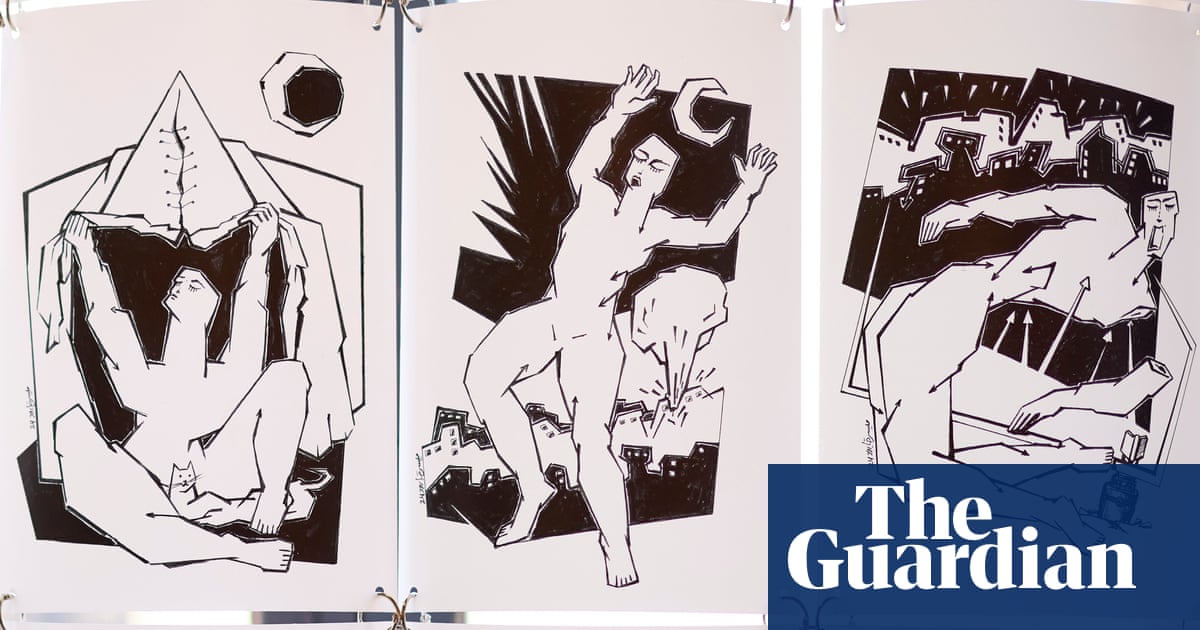
The death of British rapper Ty, aged 47, to complications from coronavirus came as a shock because it had appeared he was on his way to recovery after being moved out of intensive care. And for those of us who grew up with Ty’s voice circling our bedrooms, the shock resonates: this is an artist who touched so many with his humour and sharpness on the mic.
While all eyes were on grime in the early 2000s, Ty was charting a journey to a frontier that had yet to be fully explored. In 2001, he released his debut album, Awkward, on Big Dada, one of the few labels that would give a home to UK hip-hop acts such as Roots Manuva, Juice Aleem and Speech Debelle. It was the year of era-defining US albums such as Jay-Z’s The Blueprint and Nas’s Stillmatic, when the mainstream had gone the way of the shiny suit. But across the Atlantic, Ty ushered in the UK’s own hip-hop golden age, leaning towards the genre’s soul, jazz and funk origins.
Ty was a bridge. He showed that the divisions between UK hip-hop and the upstart genre, grime, were illusory; his music conjures memories of the Kung Fu club night at Camden’s Underworld, where you’d see grime and hip-hop heads shoulder to shoulder. He understood that many of the young MCs coming up in grime came from the same blocks and streets as the rappers in the hip-hop space. His appearance alongside Skepta and others on the remix of Bashy’s Black Boys showed this; guest spots on other tracks such as Let It Go by Rukus – which flirts with the borders of grime and hip-hop – also revealed just how ambidextrous his flow was. By now it was 2007, and fans had firmly drawn lines between UK hip-hop, grime and road rap. But it was evident in Ty’s collaborations that all genres were of the same genealogical tree.
At the same time, it’s important to acknowledge Ty’s staunch criticism of an industry that has historically failed to give UK hip-hop its proper due. UK hip-hop first made waves in the 80s with the likes of London Posse – Ty would later work with Posse member Rodney P as part of supergroup Kingdem with Blak Twang – but it struggled for attention in British media, first amid the Britpop indie boom, then later as grime had the shock of the new. As recently as 2018 Ty was complaining that “our music is considered ‘unclassic’ by mainstream British culture. It’s considered throwaway and vague.”
He also criticised some within the scene, drawing comparisons between more commercial rap music and what he saw as the greater integrity of hip-hop. In 2006 he said the British scene “deserves the cold shoulder it’s getting because it’s not pushed forward … what people are doing … is really rap music, which just focuses on the production of the music. Hip-hop is the whole thing.” He concluded: “I am treated like a little child in the UK because I do hip-hop.”
Arguably, though, the scene thrived out of plain sight and remained unadulterated. He could create comedy sketches informed by life experiences we could all relate to, such as on Hercules, about the acute anxieties of the school playground: “Bazooka Bubblegum, Space Dust and Wham! / Technicolour bed fluff meant I wasn’t the man / For kiss chase, now that was a real trauma / girls would break down and cry if I caught them in a corner.” Few songs carried depth and potency quite like The Nonsense from Awkward, with its bruised psychedelic soul, or The Willing from his Mercury-nominated second album Upwards, featuring the late Tony Allen, who died just last week.
For someone like me who grew up second-gen in a Nigerian household, hearing Ty work with someone who could have been his father, or grandfather, spoke to how intergenerational UK hip-hop has always been, and how Ty advocated for that. He founded a hip-hop education programme in the 1990s called Ghetto Grammar, but the work didn’t stop when he signed to Big Dada – last year he hosted an event, Pass the Torch, a showcase of talent with Ty nourishing the next generation of MCs. On social media there’s been an outpouring of love from artists such as Awate, Children of Zeus and Akala who all saw him as a mentor of sorts – the tributes pouring in show just how many people Ty poured his wisdom into.
There’s an unsettling irony in Ty receiving so much love and praise in his passing when he was ignored for so long. But it’s clear that, away from the media, he was the soundtrack to a lot of people’s lives in the early 2000s and beyond, and it was the potency and depth in his lyricism and storytelling that drew us closer. Ty’s work showed how much of a fallacy the divides in British rap have been – we would do well to do as he did and strive for excellence regardless of genre.
There is no comparison to him; the old patronising framing of “the UK version of (insert US name here)” won’t work. Ty’s artistry was unique, bound by his own lived experiences and the way he saw the world, communicated through his gift of repartee and sharpness. When the time comes to weave the tapestry telling UK hip-hop’s whole story, Ty has to be one of the key threads.












